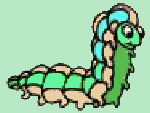Play Therapy (Children)
Play is one of the primary activities of childhood. It is important for children's physical, social and emotional learning and development. Play therapy is the use of play situations in a therapeutic setting. Whereas most adults may find relief in talking over problems, children often have difficulty in expressing thoughts and feelings in words, and play can serve as a medium for them to express themselves.
Children are seen in my well equipped therapeutic playroom where toys and materials have been selected to encourage expressive play through activities such as artwork, dolls, puppets, clay or using small figurines in a sandtray, to making a story or do a role-playing. Play can be used as a window to observe and assess the child and as a door to open and enter for intervention.
I use non-directive play to build therapeutic rapport and allow the child to resolve their issue. I may form a short or long term therapeutic relationship depending on the issues. Often working systemically taking into account and perhaps dealing with the social environment of the clients (peers, siblings, family, school etc).
A variety of play and creative arts techniques are offered to address chronic, mild and moderate psychological and emotional conditions in children that are causing behavioural problems and/or are preventing them from realising their potential. I use a wide range of play and creative arts techniques, responding to the child's wishes. However I may also direct the therapy towards specified goals through focused intervention e.g. problem solving, working through confusion, dealing with worries, releasing inner trauma.




